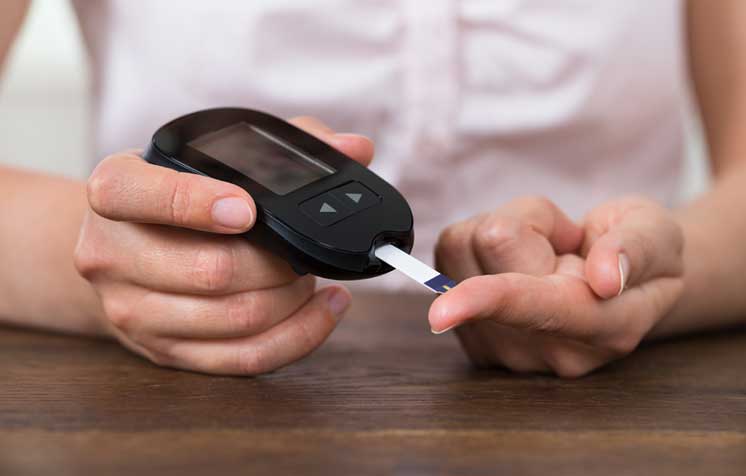HealthXchange will NEVER ask you to transfer money over a call. If in doubt, call the 24/7 ScamShield helpline at 1799, or visit the ScamShield website at www.scamshield.gov.sg.

Diabetes can be diagnosed through blood tests.
What can I do to find out if I have diabetes?
You can discuss with your doctor about having blood tests done to find out whether you have diabetes.
The blood tests are:
Random blood glucose
A random blood glucose sample that is taken without fasting. A random blood glucose of greater than 11.1 mmol/L is suggestive of diabetes.
Fasting blood glucose
A fasting blood sugar is normally measured after an overnight fast. A fasting blood sugar of 7.0 mmol/L or higher on separate occasions indicates that you have diabetes. Fasting blood glucose measured in an accredited laboratory is the preferred test for the diagnosis of diabetes. This test is easy to perform and is supported by strong evidence.
Oral glucose tolerance test (OGTT)
In this test, you will have a fasting blood glucose level taken, and asked to drink a standard amount (75 g) of a sugary drink. A fasting reading of 7.0 mmol/L or a glucose reading of > 11.1 mmol/L two hours after this drink indicates that you have diabetes.
Ref: O17
Also, check out our other articles on diabetes:
Diabetes: How to Manage Blood Sugar Levels When You Fall Sick
Diabetes Foot Care: 10 Steps to Healthy Feet
Travelling with Diabetes: Tips Before You Go
HYPERglycaemia (High Blood Glucose): First Signs
HYPERglycaemia (High Blood Glucose): What to Do
HYPOglycaemia (Low Blood Glucose): Warning Signs and Symptoms
Contributed by
Related Articles
Conditions & Treatments
Public Events
Get the Health Buddy App
© 2025 SingHealth Group. All Rights Reserved.


















 Get it on Google Play
Get it on Google Play